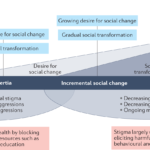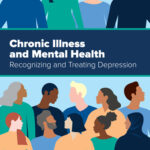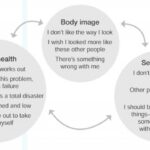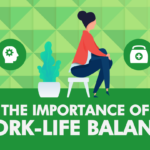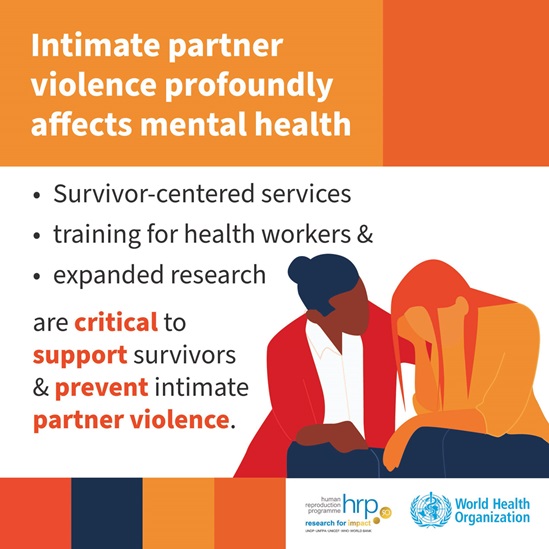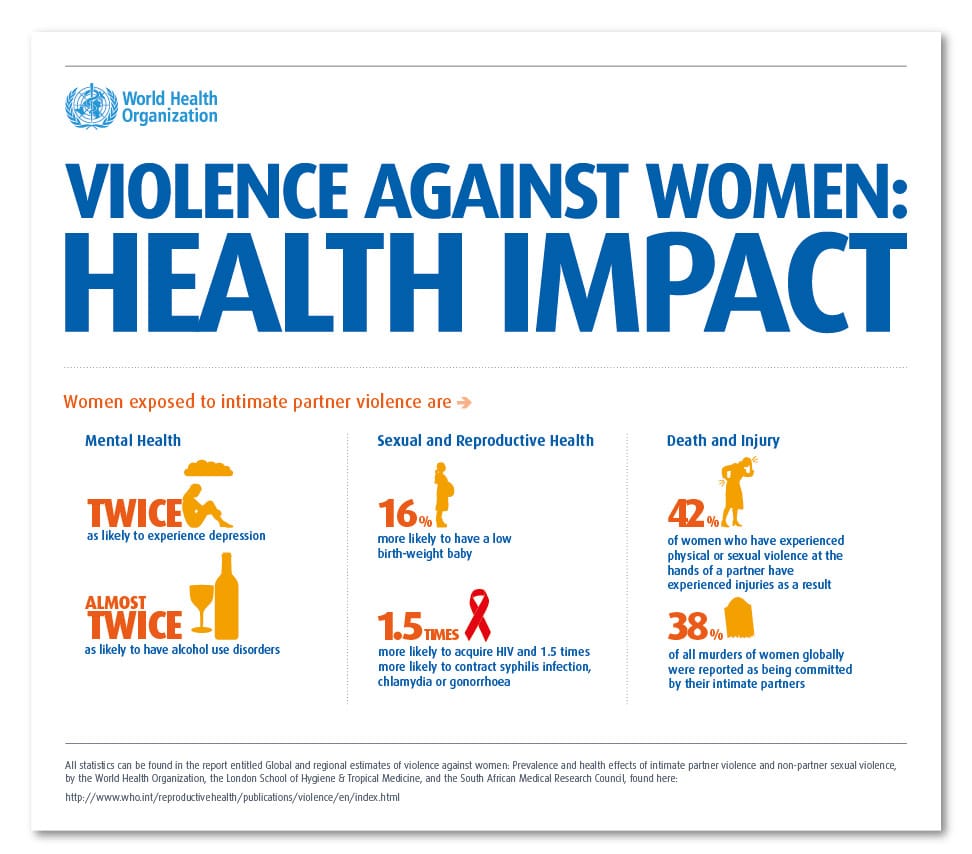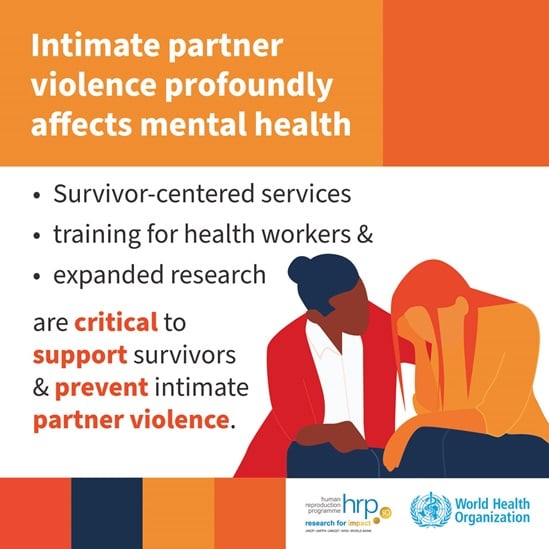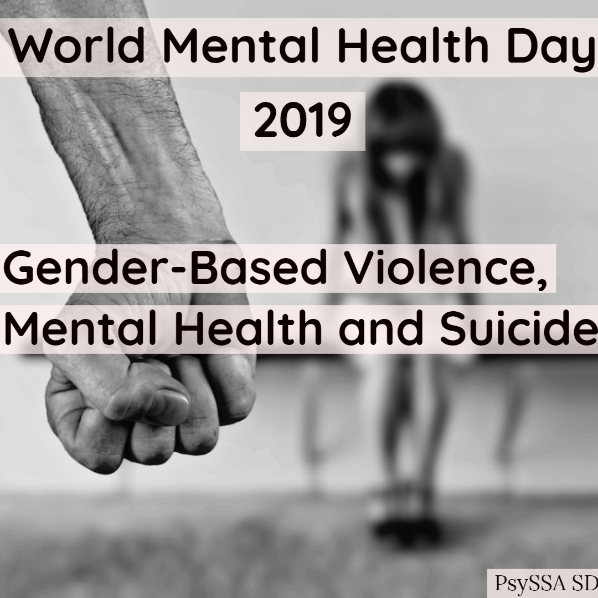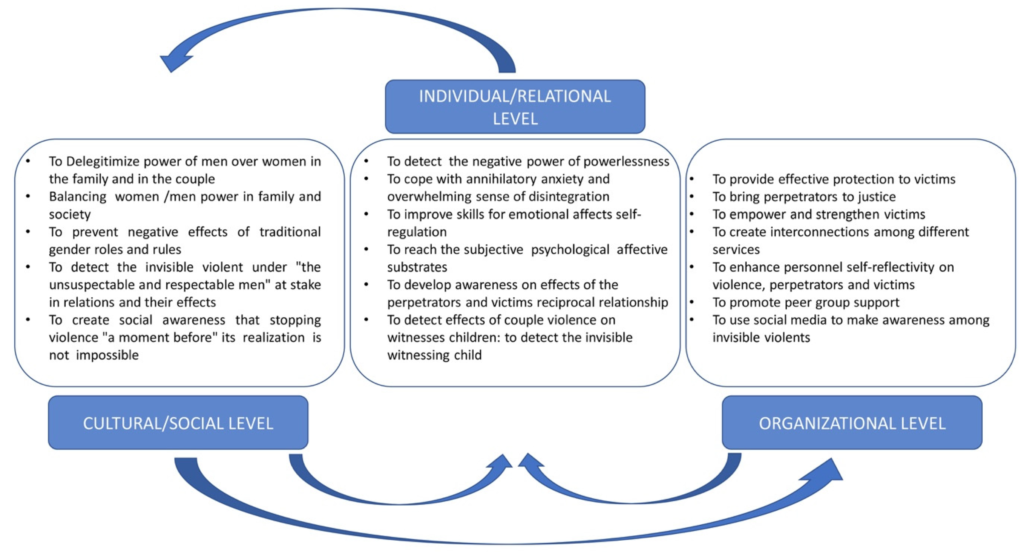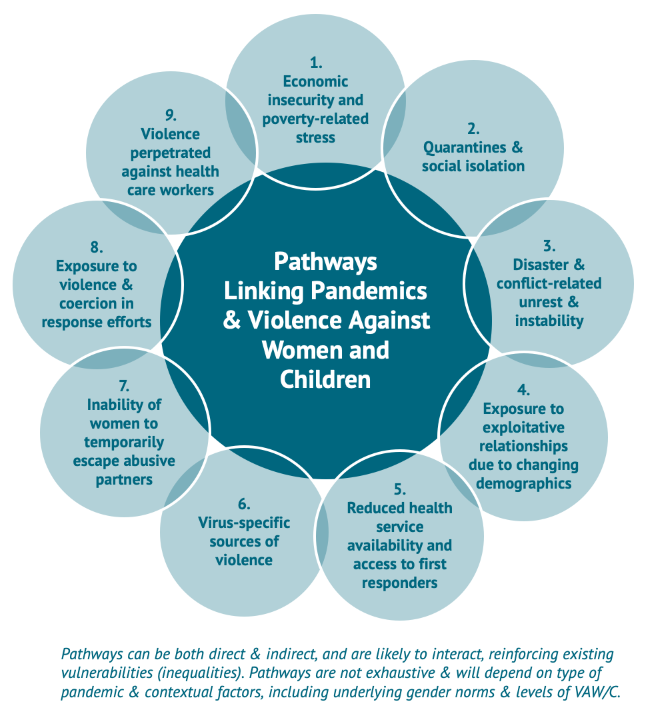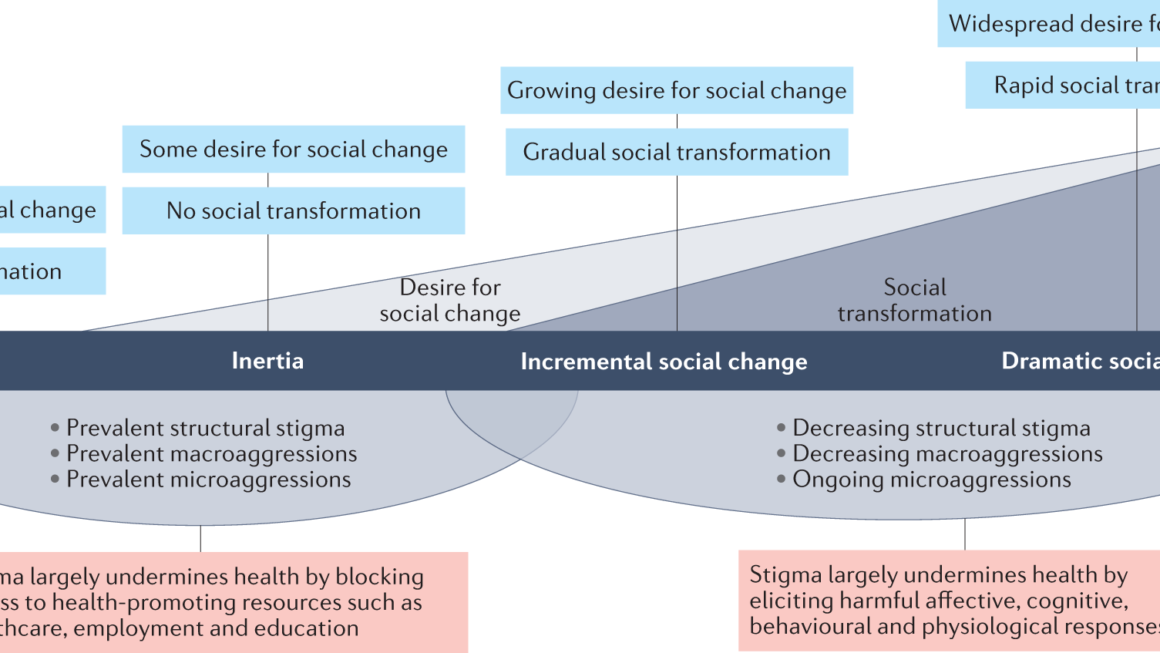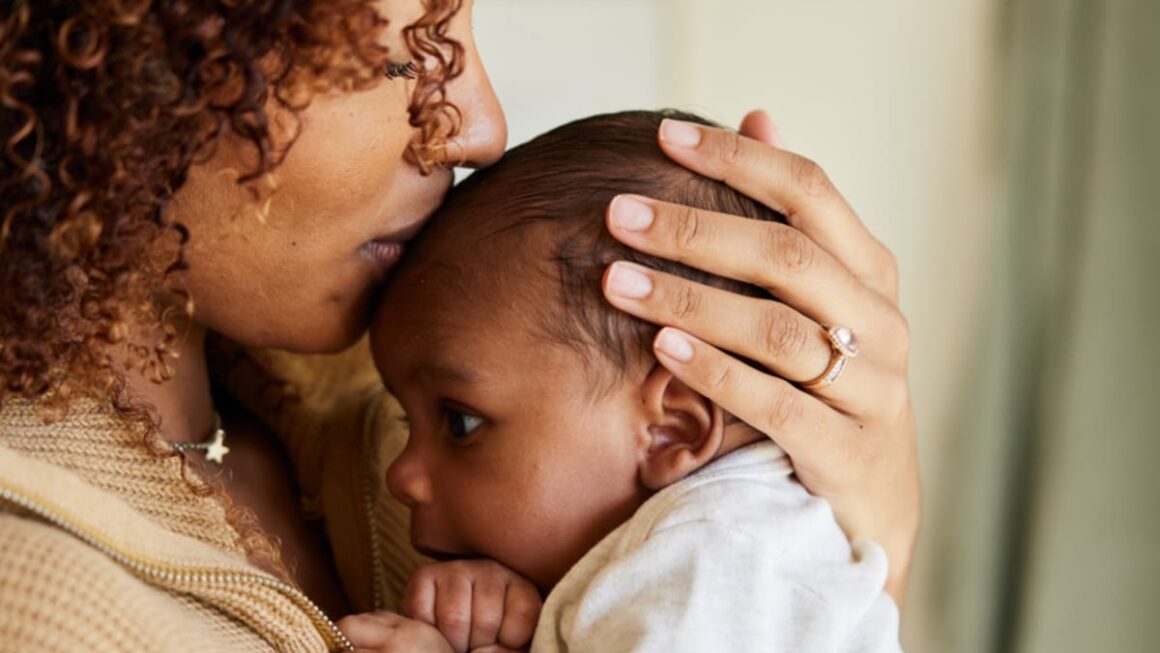In today’s article, we explore the profound psychological impact experienced by women who have been subjected to gender-based violence. By examining the deep-rooted consequences of such violence on their mental health, we aim to shed light on the importance of providing adequate support and resources to empower these women on their journey towards healing and resilience. Join us as we delve into the intricate web of emotions, thoughts, and behavioral patterns that can arise from this form of violence, understanding the necessity of fostering a society that stands against gender-based violence and promotes the well-being of all women.
Impact of Gender-Based Violence on Women’s Mental Health
Gender-based violence has significant and long-lasting effects on women’s mental health. This article explores the various psychological impacts that women may experience as a result of such violence. Understanding these effects is crucial in providing support and assistance to survivors, and in generating awareness about the profound consequences of gender-based violence.
Depression
One of the most common psychological effects experienced by survivors of gender-based violence is depression. Women who have faced various forms of violence may develop persistent feelings of sadness, hopelessness, and loss of interest in activities they once enjoyed. These feelings can be overwhelming and may significantly impact daily functioning, making it more difficult to maintain relationships, employment, and overall well-being.
Anxiety
Anxiety is another common psychological impact of gender-based violence. Survivors often experience constant worry, nervousness, and a sense of impending danger. This can manifest as generalized anxiety disorder or specific phobias related to the trauma experienced. Women may develop a heightened startle response, making it challenging to feel safe in their surroundings. The constant fear and anxiety can greatly affect their ability to trust others and engage in social interactions.
Post-traumatic Stress Disorder (PTSD)
Post-traumatic Stress Disorder (PTSD) is a severe and chronic psychological condition that can result from gender-based violence. Women who have endured traumatic experiences may exhibit symptoms such as intrusive thoughts, nightmares, flashbacks, and hypervigilance. These symptoms can be debilitating, often leading to difficulties in concentration, sleep disturbances, and emotional distress. PTSD can significantly impact a survivor’s quality of life and their ability to engage in everyday activities.
Self-esteem and Body Image Issues
Survivors of gender-based violence may also struggle with self-esteem and body image issues. The trauma experienced can lead to feelings of guilt, shame, and self-blame, often resulting in a negative perception of oneself. Women may develop a deep sense of worthlessness and struggle with body image dissatisfaction, which can contribute to the development of eating disorders or other unhealthy coping mechanisms. These issues can further perpetuate feelings of isolation and hinder recovery.
Dissociation and Emotional Numbness
Dissociation and emotional numbness are common psychological defense mechanisms that survivors may employ as a way to cope with the trauma experienced. Women may feel disconnected from their emotions or their own sense of self, making it difficult to feel joy, sadness, or any other emotions. Dissociation can lead to difficulties in forming and maintaining relationships, as survivors may struggle to connect emotionally with others. It is essential for survivors to seek professional help to address these symptoms and regain a sense of emotional well-being.
Sexual Dysfunction
Gender-based violence can also have a profound impact on a survivor’s sexual health and well-being. Women may experience sexual dysfunction, such as a loss of desire, difficulties with arousal or orgasm, or pain during sexual activity. These issues are often a result of the trauma experienced and can leave survivors feeling detached from their own bodies and unable to engage in healthy intimate relationships. Seeking therapy or medical support is crucial in addressing these challenges and restoring sexual well-being.
Suicidal Ideation and Self-Harm
The psychological impact of gender-based violence can be so severe that it may lead to suicidal ideation and self-harm. Survivors may reach a point of desperation, feeling overwhelmed by the trauma and its lasting effects. The emotional pain may become unbearable, leading some women to contemplate suicide or engage in self-destructive behaviors as a way to cope with their distress. It is essential for survivors to have access to crisis hotlines, support groups, and mental health professionals who can provide the necessary support during these critical times.
Substance Abuse and Addiction
Many survivors of gender-based violence turn to substances such as drugs or alcohol as a way to self-medicate and cope with the distress caused by their traumatic experiences. Substance abuse can exacerbate existing mental health issues and create new physical and psychological problems. The cycle of addiction can be challenging to break, as it often serves as a temporary escape from the pain and trauma. Comprehensive treatment programs that address both addiction and underlying trauma are crucial in supporting survivors on their road to recovery.
Eating Disorders
The psychological impacts of gender-based violence can also contribute to the development of eating disorders. Women may turn to disordered eating patterns, such as binge eating, purging, or severe calorie restriction, as a way to regain control over their bodies or cope with overwhelming emotions. Eating disorders not only pose severe physical health risks but also perpetuate a negative cycle of self-harm and exacerbate existing mental health challenges. It is vital for survivors to seek specialized treatment that addresses both the underlying trauma and the disordered eating behaviors.
Chronic Health Issues
It is important to note that the psychological impacts of gender-based violence can have long-term effects on a survivor’s physical health as well. The constant stress and trauma experienced can contribute to the development or exacerbation of chronic health issues, such as cardiovascular problems, autoimmune disorders, and gastrointestinal conditions. Additionally, survivors may have difficulties accessing healthcare due to financial constraints or lack of awareness about available services. It is crucial for healthcare providers to be knowledgeable about the potential connections between gender-based violence and physical health issues, in order to provide appropriate care and support.
Barriers to Seeking Help and Support
Survivors of gender-based violence often face numerous barriers when seeking help and support. These barriers can further exacerbate their psychological distress and hinder their recovery process. Understanding these obstacles is crucial in developing strategies to overcome them and ensure that survivors receive the support they need.
Stigma and Shame
Stigma and shame surrounding gender-based violence can often prevent survivors from seeking the help they need. Society’s misconceptions and victim-blaming attitudes can lead survivors to feel ashamed, embarrassed, or even responsible for the violence they have experienced. Women may fear judgment or rejection from others, leading them to suffer in silence rather than seeking support. It is important for society to challenge these stigmatizing attitudes and create an environment that encourages survivors to come forward without fear of judgment.
Fear of Re-victimization
Survivors may also fear re-victimization if they disclose their experiences or seek help. The power dynamics and control mechanisms involved in gender-based violence can lead survivors to believe that their safety is at risk if they reach out for support. This fear can be particularly significant for women who are still in abusive relationships or who have a history of repeated victimization. Efforts must be made to create safe spaces and confidential resources for survivors, ensuring that their privacy and security are prioritized.
Lack of Awareness and Knowledge
A lack of awareness and knowledge about available resources and support services can also hinder survivors from seeking help. Many women may not know about the options and assistance that are available to them, or they may believe that there is no help possible. Raising awareness about these resources and ensuring that information is easily accessible is essential in empowering survivors to take the first step towards healing.
Financial Constraints
Financial constraints can pose a significant barrier for survivors who wish to seek help and support. The financial impact of gender-based violence may leave women economically disadvantaged, making it difficult for them to access professional counseling, therapy, or other necessary resources. Ensuring that affordable or free services are available to survivors can remove this barrier and increase their chances of receiving the support they need.
Lack of Accessible Services
Even when survivors are aware of available services, their geographic location or lack of transportation can prevent them from accessing them. Many rural areas may have limited mental health resources, making it challenging for survivors to find the help they need close to home. Lack of transportation or childcare can also hinder a survivor’s ability to attend therapy sessions or support groups. It is essential to expand and improve the availability and accessibility of services to ensure that all survivors have equal opportunities to seek help and support.
Coping Mechanisms and Resilience
Despite the numerous psychological challenges faced by survivors of gender-based violence, many demonstrate remarkable resilience and find ways to cope and heal. Understanding the coping mechanisms that are effective in promoting survivor well-being is crucial in providing appropriate support and fostering resilience.
Social Support
Social support is a vital component in a survivor’s journey towards healing. Having a network of understanding and empathetic individuals, whether they be friends, family members, or support groups, can provide a sense of belonging, validation, and assistance in coping with the psychological effects of gender-based violence. Creating opportunities for survivors to connect with others who have had similar experiences can be incredibly empowering and validating.
Therapy and Counseling
Professional therapy and counseling can play a transformative role in a survivor’s recovery process. Specialized therapists who are knowledgeable about trauma and its effects can provide survivors with a safe and supportive space to express their emotions, process their experiences, and learn healthy coping strategies. Therapeutic modalities such as cognitive-behavioral therapy (CBT), eye movement desensitization and reprocessing (EMDR), and trauma-focused therapy have been found to be instrumental in addressing the psychological impacts of gender-based violence.
Self-Care Practices
Engaging in self-care practices is an essential aspect of promoting mental well-being among survivors. Encouraging survivors to prioritize their physical, emotional, and spiritual needs can help rebuild a sense of self and empower them to take control of their healing journey. Self-care practices may include activities such as exercise, meditation, journaling, engaging in hobbies, and setting boundaries in relationships. Adopting healthy lifestyle habits contributes to overall well-being and can aid in the recovery process.
Empowerment and Advocacy
Empowerment and advocacy are powerful tools in promoting the well-being of survivors and challenging the systems that perpetuate gender-based violence. Providing survivors with opportunities to become advocates for change, share their stories, and actively participate in initiatives aimed at raising awareness can help reclaim their power and facilitate healing. Empowering survivors to become agents of change not only promotes their own recovery but also creates a societal shift towards a culture that rejects violence against women.
Educational Programs and Awareness Campaigns
Educational programs and awareness campaigns play a crucial role in combating the psychological impacts of gender-based violence. By promoting education and awareness about consent, healthy relationships, and the detrimental effects of violence, these initiatives can empower individuals to recognize and respond to signs of violence, support survivors, and break the cycle of abuse. Educational programs can provide survivors with the knowledge and tools necessary to seek support and navigate the recovery process.
Factors Affecting Long-Term Recovery
Various factors can influence a survivor’s long-term recovery process. Understanding these factors is essential in tailoring interventions and support services to meet the individual needs of survivors and ensure their sustained well-being.
Nature and Severity of the Violence
The nature and severity of the gender-based violence experienced can have an impact on a survivor’s long-term recovery. The more severe and traumatic the violence, the greater the psychological impact is likely to be. Survivors who have experienced repeated acts of violence or who have been subjected to extreme forms of violence may require more intensive support and longer-term interventions.
Duration and Frequency of the Abuse
The duration and frequency of the abuse can also influence a survivor’s recovery process. Long-term exposure to violence can result in complex trauma, which often requires specialized interventions and support. Survivors who were subjected to prolonged abuse may have more deep-seated psychological wounds that require comprehensive therapeutic approaches to address.
Age and Developmental Stage
The age and developmental stage of a survivor at the time of the violence can shape their recovery process. Children and adolescents who have experienced gender-based violence may face unique challenges due to their limited understanding of the trauma and its lasting effects. Age-appropriate interventions and support services are crucial in addressing the specific needs of younger survivors and promoting their healing.
Socioeconomic Factors
Socioeconomic factors can significantly impact a survivor’s ability to access resources and support services. Gender-based violence often intersects with economic injustice, leaving survivors financially disadvantaged and unable to access necessary care. Poverty, unstable housing, and lack of access to employment opportunities can further perpetuate the cycle of violence and hinder a survivor’s recovery.
Cultural and Religious Beliefs
Cultural and religious beliefs can also influence a survivor’s recovery process. Some cultural norms or religious teachings may perpetuate victim-blaming attitudes or discourage survivors from seeking help. Understanding and respecting the cultural and religious context of survivors is crucial in providing appropriate support and education that aligns with their values and beliefs.
The Role of Society and Systems
Addressing the psychological impacts of gender-based violence requires collective efforts from various societal systems. Creating supportive environments and dismantling systems that perpetuate violence are crucial in facilitating the healing and recovery of survivors.
Legal and Justice System
The legal and justice system plays a significant role in supporting survivors and holding perpetrators accountable. It is essential for legal frameworks to provide comprehensive protection for survivors, including access to restraining orders, legal representation, and swift and fair trials. Improving the legal response to gender-based violence not only ensures justice for survivors but also sends a strong message that violence will not be tolerated.
Community Support
Creating a community that actively supports survivors is a critical aspect of promoting healing. Local organizations, grassroots initiatives, and community leaders can provide safe spaces, resources, and emotional support for survivors. By organizing awareness campaigns, support groups, and educational initiatives, communities can help break the silence surrounding gender-based violence and foster an environment of empathy and understanding.
Educational Institutions
Educational institutions play a vital role in preventing gender-based violence and supporting survivors. Implementing comprehensive sex education programs, teaching consent and healthy relationship dynamics, and establishing policies that address violence within educational settings can empower students to recognize and report abuse. Additionally, educational institutions should provide accessible and confidential support services for survivors and prioritize their well-being.
Media and Public Perception
The media has immense power in shaping public perception and influencing societal attitudes. Promoting accurate and empathetic representations of survivors, challenging victim-blaming narratives, and highlighting the consequences of gender-based violence are vital in garnering public support and generating empathy. Responsible journalism and media campaigns can help combat the stigma, challenge harmful stereotypes, and facilitate a culture of support for survivors.
Policy and Advocacy Efforts
Effective policies and advocacy efforts are fundamental in addressing the psychological impacts of gender-based violence. Governments and organizations must work together to develop and implement policies that prioritize survivor well-being, actively challenge societal norms that perpetuate violence, and support initiatives aimed at prevention, education, and support services. Strong policy frameworks and adequate funding can ensure that survivors have access to the resources and support they need to heal and recover.
In conclusion, gender-based violence has profound psychological effects that can significantly impact the mental health and well-being of women. Understanding the various psychological impacts, barriers to seeking help, coping mechanisms, and factors influencing long-term recovery is crucial in providing effective support to survivors. By addressing these issues and creating supportive and empowering environments, we can work towards a future where gender-based violence is eradicated, and the mental health of survivors is prioritized.
